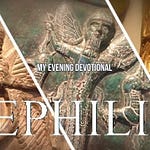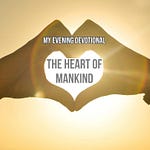Exodus 9:23-24 When Moses stretched out his staff toward the sky, the Lord sent thunder and hail, and lightning flashed down to the ground. So the Lord rained hail on the land of Egypt; 24 hail fell and lightning flashed back and forth. It was the worst storm in all the land of Egypt since it had become a nation.
It appears that Moses, the author of the Torah could differentiate between fire (e.g. Gen 19:24) and lightning (e.g. Exodus 20:18). It is surprising that hail and fire would coexist at the same time ("fire flashing continually in the midst of the hail").
Before he announced the seventh plague, God reminded Pharaoh of his mercy towards him in the previous plagues. God could have destroyed him and his people in one mighty plague, but instead he sent these lesser plagues, each time giving Pharaoh an opportunity to repent. The longer Pharaoh delayed, the greater would be his downfall, and the greater would be God’s glory when he finally overthrew him. God gave good warning before the coming destruction by hail and lightning, so that people could escape the judgment if they wished. Many of Pharaoh’s courtiers, fearful of Israel’s God, heeded Moses’ warnings and so were not affected by the disaster (9:13-35).
Fire and ice
Moses stands with his arms stretched up toward the sky as hail, the seventh plague, begins to rain down on Egypt. Miraculously, the icy hailstones each contained a flame that burned within it.
As the hail destroyed the trees of Egypt, Pharaoh begged Moses to pray that there be no more hail, and promised to let the Israelites go (Exodus 9:27-28). The jewish tradition, midrash says that when Moses prayed for the hail to cease, the hailstones that were on the way down were suspended in midair. We don’t have that report in the Bible but this was a spectacular storm, never seen before in Egypt.
Heart of ice
In this passage we have the longest account of any of the plagues, except for the tenth (and final) one. This seventh plague concerns the destruction, by hail, of the land of Egypt. But even more sobering than this is the proof positive that Pharaoh had crossed the line of no return. He was now seen to be irremediably reprobate. In spite of incontrovertible evidence, Pharaoh would not surrender to God.
Some people have ice cold hearts that will not surrender to God in spite if the clear circumstances showing that the Lord is doing a show of force.
The gods of Egypt
The catastrophe of the hail was therefore a mockery of the Egyptian heavenly deities, including Nut (the female representative of the sky and personification of the vault of heaven), Shu (the supporter of the heavens who holds up the sky) and Tefnut (the goddess of moisture).”
Some of the Egyptians nevertheless believed the Word of the Lord and so took the necessary precautions.
Exodus 9:20-21 He that feared the word of the LORD among the servants of Pharaoh made his servants and his cattle flee into the houses: and he that regarded not the word of the LORD left his servants and his cattle in the field.
We are not told how many believed Yahweh but it is significant that some did. The hand of the Lord was persuasive in their lives and so even though they ran the risk of being ostracised, they obeyed the Word of the Lord. And no doubt some 24 hours later, they were glad that they had.
The storm was strong and heavy but Pharaoh was a proud man and his heart didn’t move. Some people are like this man and remain in their ungodliness.
Hebrews 3:15 As it is said, “Today, if you hear his voice, do not harden your hearts as in the rebellion.”














Share this post